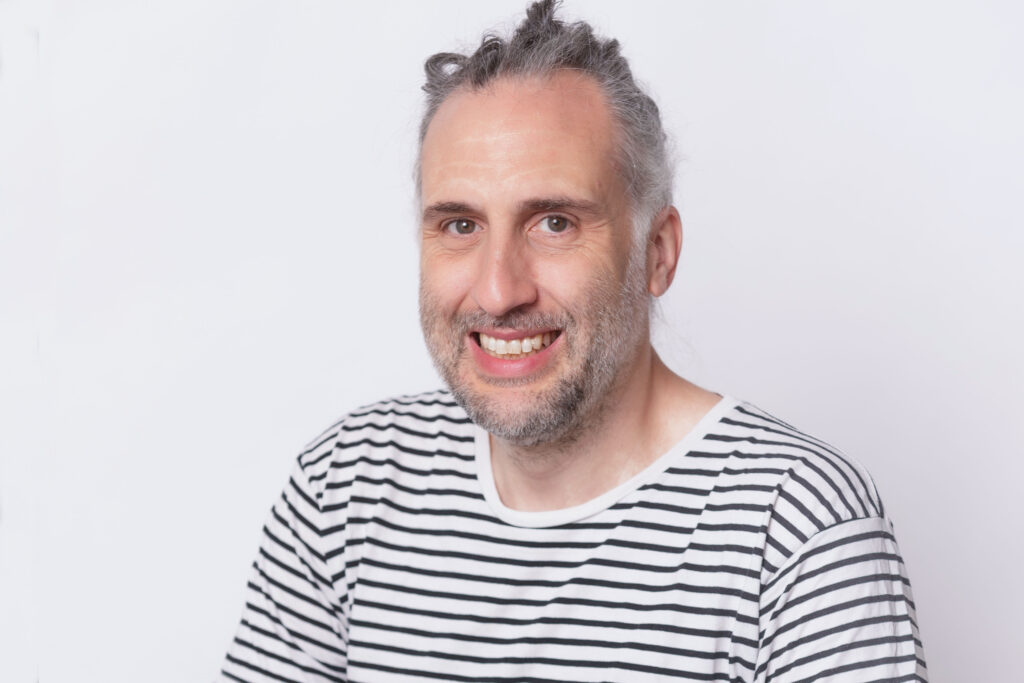The brainers

Sebastian Dieguez – Neuroscientist
Sebastian Dieguez has a doctorate in neuroscience and cognitive psychology, and teaches at the University of Fribourg in Switzerland. His work focuses on the nature and formation of beliefs, with a particular emphasis on contemporary conspiracy theory. He is also interested in the links between psychology and literature, the spread of pseudoscience, and the nature of self-consciousness. Alongside his academic activities, he writes regularly for the magazine Cerveau & Psycho and the satirical journal Vigousse. He is the author of Total Bullshit! Au cœur de la post-vérité; Le Complotisme: cognition, culture, société (with Sylvain Delouvée); L’Expertise sans peine (with Nicolas Gauvrit); Croiver: pourquoi les croyances ne sont pas ce qu’on croit; La Force de nos bugs.
This brainer takes part in round-table discussions, offers improvisation sessions and the following solo talks:
Getting to know our (little) brain bugs
It's well known that our computers, gadgets, cars and other utilities suffer from incessant bugs that ruin our lives. But is our brain better off? This talk will focus on those innumerable everyday mistakes, seemingly innocent and harmless, but which can lead to embarrassing misunderstandings, and even monumental errors. Lapses, oversights, blockages, absences, slips, confusions... and other mental bugs will be discussed from the perspective of cognitive psychology and neuroscience, with numerous examples. A better understanding of these perfectly natural bugs will help us to decode confusing situations, defuse misunderstandings, improve our organization and have fun with our limitations.
What they don't tell you about conspiracy theories
Should you believe what they don't tell you? In their strange logic, conspiracy theories would like to reveal secrets that are not only unmentionable, but by definition inaccessible. This conspiracy reading of reality is at the heart of many debates today, and requires a rigorous and dispassionate examination. We'll get to the heart of the matter by pointing out the conceptual difficulties of this notion of “conspiracy theory” and presenting the latest scientific data examining the conspiracy mentality. Everyone has an acquaintance who subscribes to one of these sometimes disturbing, occasionally amusing, but more often smoky theories. A better understanding of the subject, which in no way implies “dismantling” each particular theory, will enable us to respond.
Near-death experiences
What happens after death? A vast question... However, for some forty years now, many writers, doctors, researchers and the media have been presenting near-death experiences (NDEs) as a scientific argument in favor of the existence of an afterlife. This focus, however, has obscured many other facets of NDEs. We'll see how these decorporation experiences and other tunnel visions inform us about the nature of our consciousness, the experience of our bodies, the origin of our beliefs and the mechanisms of our brains. This autopsy of IMEs will attempt to give new life and justice to these fascinating and under-explored phenomena.
Neurology of the strange
Have you heard of somatoparaphrenia? Or Ganser syndrome, apotemnophilia, anarchic hand syndrome? Do you think you can recover from amnesia with a good blow to the head? There's a world far stranger than that of science fiction films or horror novels: the neurology department. This lecture will present some of the strangest cases in the annals of neurology, as well as personally observed patients. Far from the voyeurism of the worst kind, the aim is to help us understand the diversity of human behavior by revealing the astonishing intricacies of our brains.
Literature and psychology
This lecture will show how the classics of literature inform us about human psychology. Indeed, many authors have anticipated or glimpsed fundamental discoveries in cognitive psychology and brain science. Through numerous examples, the aim of the presentation will be to show how these links between science and literary fiction work, and how the great texts directly concern us in our everyday lives.